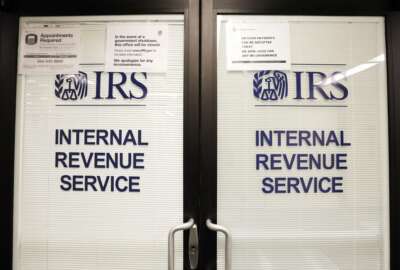
Are you a lifer with Uncle Sam? Maybe not!
It is possible to work for Uncle Sam long enough to get and qualify for benefits and an annuity, but still leave government earlier.
Contrary to the popular image of government as an employer-for-life, most people who come into federal service don’t stay long enough to retire and get an annuity. Or another excellent government benefit such as the heavily subsidized health insurance, for life.
Studies in the past showed that only about one-in-three feds in the 1980s actually retired from government. That’s one reason Congress swapped-out the generous, stand alone Civil Service Retirement System (CSRS) and replaced it with the Federal Employees Retirement System (FERS). Although CSRS and FERS sound alike, they are two very different critters. CSRS provides a very generous annuity (feds don’t like the term pension) for life. And it is fully indexed to inflation. An individual who put in 25-to-30 years could retire with their annuity and expect a good life.
FERS was designed to save money and take into account the fact that most people didn’t retire from the government. Most worked for awhile before taking jobs somewhere else. But their retirement credits and benefits couldn’t be transferred to another employer. Enter FERS. It gives workers a smaller annuity — they contribute less than CSRS employees— but offers them coverage under Social Security. And a very generous 401k plan to which the government will match up to 5% of contributions. The civil service benefit under FERS is about one-third of someone retiring under CSRS. And if the inflation rate is above 2%, FERS retirees get raises that are 1% less than their CSRS counterparts.
Despite annual predictions since the late 1990s of a massive retirement tidal wave, feds are not leaving in droves. More in dribbles. The number of retirees has been dropping over the past few years. But some people think the recent global lockdown, which impacted all of us, may have changed the way we are working — including what we do and where we do it — forever. Maybe especially for feds, many of whom have been working from home or a remote site. Many of them will be asked to return to the traditional office.
How so?
Depending on which poll you read/believe, many say they won’t stay in government unless they work at lease part of the week from home. Or maybe a remote site in a more pleasant, cheaper, locale. Bottom line is that many feds already leave their jobs before they are eligible to retire. And even more may choose to leave federal service before they are eligible to retire.
But there is another way.
It is possible to work for Uncle Sam long enough to get and qualify for benefits and an annuity, but still leave government earlier. Benefits expert Tammy Flanagan thinks that may be about to happen. That thousands, maybe more, current feds would like to leave their jobs before becoming eligible for traditional, immediate retirement benefits. She says there is a way many could leave now, or sometime in the future, take up another career, but then, years from now, qualify for a reduced (but lifetime) federal retirement benefit. And in some cases qualify for the Federal Employee Health Benefits program. With coverage for life for them and their spouse/partner. With the government paying up to 75 percent of the total premium.
The secret, she says, is understanding the MRA+10 (minimum retirement age) option. If you do it right, you can leave earlier than planned, for whatever reason, and still retire down the road from the government. Tammy will be my guest today on Your Turn. That’s 10 a.m. ET streaming here or on the radio in the Washington D.C. area at 1500 AM. If you have questions for Tammy, send them to me before we go on the air at mcausey@federalnewsnetwork.com.
Nearly Useless Factoid
By Alazar Moges
Though the cheetah has the top speed for a land animal, the American antelope, also known as the pronghorn, is the fastest long distance runner. The pronghorn can maintain a speed of around 35 miles per hour for several miles and can reach up to around 55 miles per hour at top speed.
Source: Britannica
Copyright © 2024 Federal News Network. All rights reserved. This website is not intended for users located within the European Economic Area.
Mike Causey is senior correspondent for Federal News Network and writes his daily Federal Report column on federal employees’ pay, benefits and retirement.
Follow @mcauseyWFED





